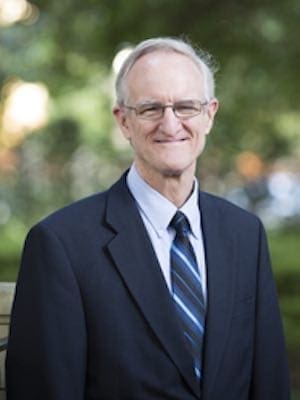Religious liberty has been a hallmark distinctive in Baptist life. Thomas Helwys, Roger Williams and John Leland are familiar figures in the pantheon of Baptist “heroes” who are known for their support of freedom. At the institutional level, the Baptist World Alliance has been a similar “hero” for almost 100 years.
The First Baptist World Congress was held in London in 1905. According to J. N. Prestridge, Baptists had achieved a “world consciousness.” Baptists recognized the need for a world organization for voluntary cooperation and fellowship. Never shy about touting their Baptist identity, denominational uniqueness was clearly heard in those initial meetings of what we now call the Baptist World Alliance. Another “agenda” item heard repeatedly was the clarion call for religious liberty.
The historical backdrop for the international Baptist meeting was a conflict over the role of government in English schools. The educational system had been providing nonsectarian teaching of religion in schools, but with the passage of the Education Acts of 1902-1903, English elementary and secondary schools were placed under government control. Religious tests for teachers were enacted and religious schools were afforded support through local taxes.
Pre-eminent English Baptist leader John Clifford led the “Free Church” protest in England. At the First Baptist Congress he chastised the discriminatory taxation to support sectarian religion in schools.
Baptists from America joined in the fray and were not shy in trumpeting the call for religious freedom and the separation of church and state.
William Whitsitt, former president of Southern Baptist Theological Seminary (and controversial figure for many because he dared to demonstrate that Baptists could not trace their denominational lineage back to the Jordan River) declared that the state’s function was to teach citizenship, not churchmanship.
E. Y. Mullins, in his sixth year as Whitsitt’s successor as president at the Louisville seminary, preached about Baptist distinctives and explained his now famous “axioms of religion” which included the religio-civic axiom: “a free church in a free state.”
In a keynote address, American Baptist theologian A. H. Strong also focused on the necessity of religious liberty. Wherever you turned, the message was heard: Baptists cooperate to contend for religious liberty.
Fifty years later, at the 1955 Golden Jubilee Congress (again) in London, the political tension of the era reminded Baptists of the importance of their historic distinctive.
British and American missionaries had recently been excluded from China and Baptists in Spain and Columbia were hampered by repressive edicts or persecution. The Communist threat raged internationally.
The meeting halls of the BWA celebration buzzed with the news that Russian Baptists were in attendance for the first time. Many participants were excited by their courage, but some observers wondered aloud whether the Russian interpreter was a communist “plant” and if the “real” Russian Baptists were those persecuted ones not free to attend the Congress.
Speakers at the Golden Jubilee reiterated the clarion call for religious liberty but offered no simplistic litany of verbiage void of serious commitment.
Gunnar Westin of the University of Uppsala in Sweden said it was easy to take a stand for religious liberty when your own group would be the benefactor, but the real test was the willingness to fight a disinterested battle for liberty.
Walter Binns of William Jewell College in Missouri affirmed the need for the separation of church and state but warned that religious freedom was not dependent on any particular form of government. Majority rule resulted in happiness only when the majority was enlightened and righteous.
And in words Baptist missionaries have recently repeated, BWA officer Arnold T. Ohrn declared that Baptists might find it is easy to publish protests against the perpetuators of religious persecution, but these protests must not make matters more difficult for the persecuted.
In 2005, the Baptist World Alliance will celebrate its 100th anniversary, and the worldwide fellowship of Baptists will no doubt continue to trumpet a clarion call for religious liberty. That call will be heard by Baptists who have been persecuted, who understand what it means to be a minority, and who understand the value of genuine cooperation.
That 2005 international meeting of Baptists will know the difference between a call for liberty that focuses on “my group” and a disinterested stand of freedom for all.
The BWA will more than ever stand as a symbol that a majority which defines freedom as “conformity to our way” is not the same clarion call that is the genuine legacy of the Baptist witness.
Doug Weaver is assistant professor of religion at Baylor University.

